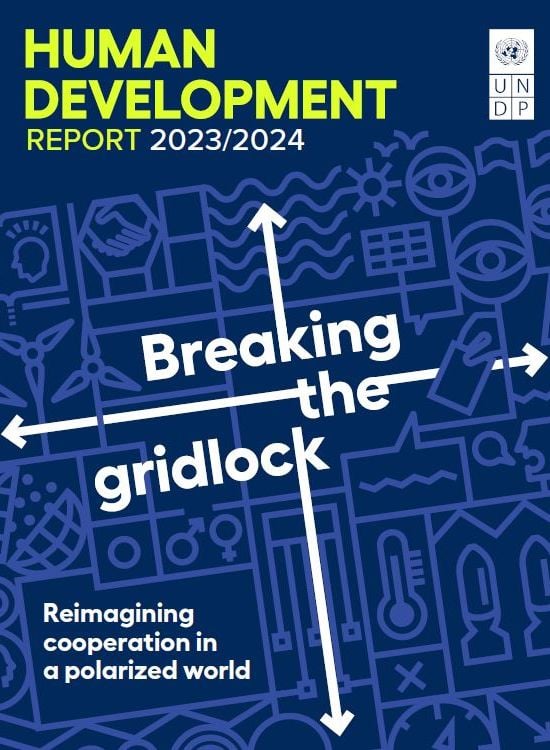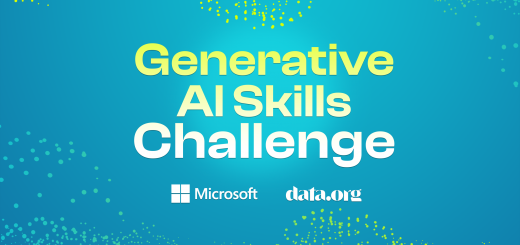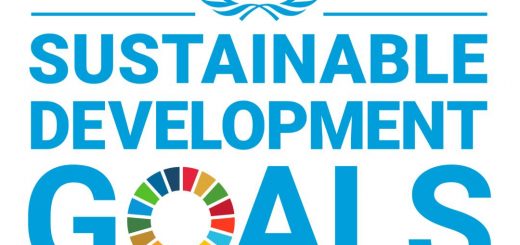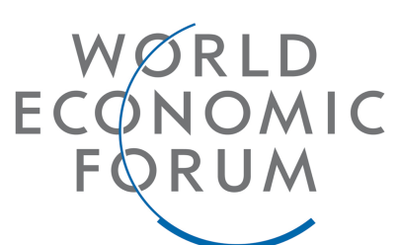The Human Development Report 2023/24: The need for collaboration for Global Progress
Source – Human Development Report 2023/24

The Human Development Report 2023/24 warns of a dangerous stalemate caused by unequal development, rising inequality, and growing political division. It highlights a shift in global interdependence and proposes a new approach centered on international cooperation to address these urgent challenges. This approach would require multilateralism to play a key role.
The world’s progress on human development has stalled. After steady gains, inequality is rising again, and frustration is mounting. The pandemic’s toll extends beyond lives lost – it’s a setback in education, well-being, and trust in institutions. People are feeling unheard and disempowered. This frustration, coupled with rising populism and a “me-first” mentality, is creating a dangerous mix of polarization and distrust. This threatens not only future development but also the health of the planet.
There is hope, however. Cooperation, not competition, is the key. We need to find ways to work together – both within and between countries – to address these challenges. This requires rebuilding trust and empowering people to participate in shaping a better future.
Build a 21st-century architecture for global public goods
The 21st century needs a new architecture for global public goods, acting as a third pillar alongside development and humanitarian aid. This system would see rich nations contribute to poorer ones, but with the goal of achieving benefits for all countries. Every nation would have a voice and a chance to contribute, fostering a truly multilateral approach. Financing for these public goods would be additional to existing aid, not a replacement. It could come in forms like concessional financing for investments in poorer countries that yield global benefits, or automatic triggers in financial instruments to help poorer nations weather crises they didn’t cause (like climate change). This approach would create predictability and attract private investment, ultimately strengthening all nations in a more secure future.
Dial down temperatures and push back polarization
To combat the poisonous effects of polarization, a two-pronged approach is needed. Firstly, providing global public goods and correcting misperceptions about others’ beliefs can foster cooperation. For example, many people underestimate global consensus on issues like climate change. Secondly, we need to create spaces for deliberation, like citizen assemblies, to bridge divides. This can involve practical information processing tools and framing information to avoid triggering anger. Narrative-based approaches like storytelling can be particularly effective. The key is to encourage empathy, trust, and shared identity through deliberate and deliberative processes.
Narrow agency gaps
Narrowing the gap between people’s perception of their agency and reality is crucial. Currently, many feel powerless and distrustful of institutions. To address this, institutions need to become more people-centered, focusing on human well-being and environmental health. They should also be co-owned, with shared responsibility and decision-making power. Finally, a future-oriented approach that emphasizes collaboration and hope can foster productive dialogue and action. These principles, applied flexibly in different contexts, can break through single narratives, build trust, and help us navigate our increasingly interdependent world.
The Human Development Report paints a concerning picture of a world teetering on the edge of progress. Rising inequality, distrust, and a sense of powerlessness are creating a dangerous gridlock. However, the report also offers a path forward. By building a new architecture for global public goods, fostering empathy and shared identity, and empowering people through inclusive institutions, we can break free from this gridlock. The 21st century demands a renewed focus on cooperation, not competition. By working together, we can build a more just, sustainable, and secure future for all.


